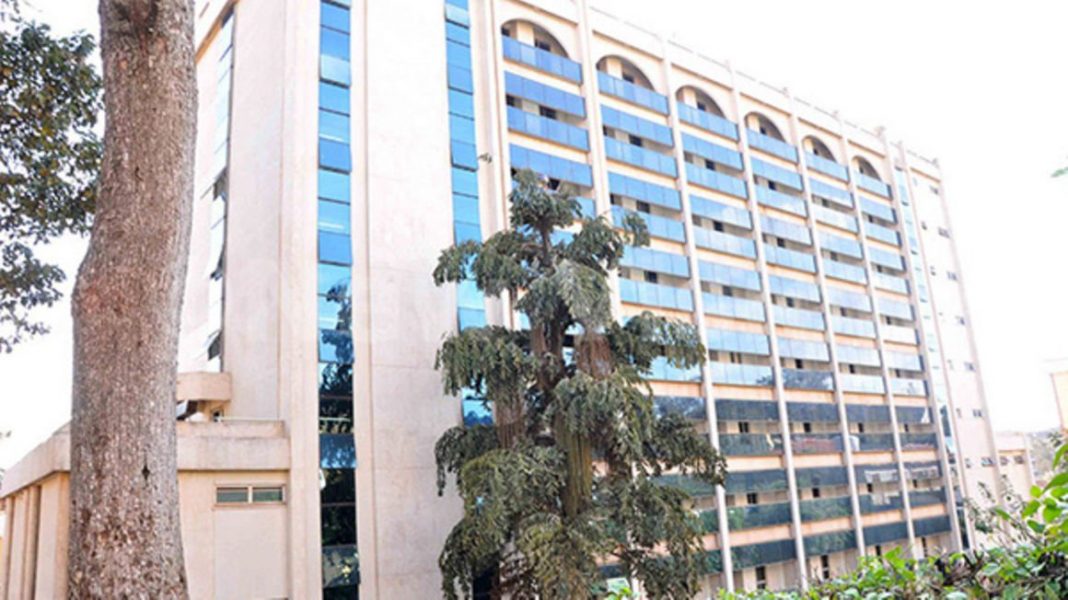Simbamanyo Estates Limited have withdrawn their application in which they were seeking to stop the takeover of its property on Lumumba Avenue. They had petitioned the Court of Appeal seeking orders to maintain the status quo stopping the sale of their property by Equity Bank which is seeking to recover loans worth $10.8 million (Shs40 billion).
On August 20, 2012, Equity Bank granted Simbamanyo a loan of $6m (about sh21.6b). The loan was to finance the construction of a hotel at Mutungo, a Kampala suburb, and to take over a prior facility from Shelter Afrique.
They were also seeking to halt a High Court order that required them to pay 30 per cent of the outstanding loan totaling Shs12 billion.
When the matter came up for hearing before Justice Christopher Madrama, Simbamanyo Estates lawyer Robert Friday Kagoro, asked the court to allow withdrawal of the case reasoning that it has been overtaken by events.
However, Equity Bank lawyers; Sim Katende and Frederick Mpanga asked the court to order Simbamanyo Estates to pay the legal costs incurred by the bank.
Last Thursday, Equity Bank sold Simbamanyo House on Lumumba Avenue to Meera Investments at $5m (sh18.5b) to Meera Investments Limited owned by businessman Sudhir Ruparelia.
“All tenants were put on notice of the said auction via an advert in the Daily Monitor newspaper dated September 8,” reads the notice signed by the bank’s Managing Director, Sam Kirubi in a notice dated October 8th 2020.
“We trust you will accord the new owners all courtesy and all future rental payments and other tenant inquiries and obligations will be handled by Meera Investments Limited or their agents,” the notice further read.
Simbamanyo Estates, through their lawyers of Muwema and Co. Advocates, insist that they appealed against the payment of 30 per cent which was being claimed by the bank, and that the appeal is yet to be fixed for hearing.
Court documents indicate that upon issuance of the High Court order on September 7, the bank advertised their property, and were meant to and finally sold on October 8.
“There is an imminent threat and danger that the applicant’s said properties will be sold off and thereby prejudice the pending appeal unless the respondents are restrained,” reads part of the court document.
How it started
Court documents indicate that on August 20, 2012, Equity Bank granted Simbamanyo a loan of $6m (about sh21.6b). The loan was to finance the construction of a hotel at Mutungo, a Kampala suburb, and to take over a prior facility from Shelter Afrique. Under the said facility, Equity Bank advanced $2.5m (the Kenyan loan) to Simbamanyo while Equity Bank Uganda lent it $3.5m.
Simbamanyo contends that it started servicing the loan but required more financing, which culminated in two additional facilities granted by Equity Bank Uganda of $1.2m (about sh4.3b) for the completion of the hotel.
It also asserts that Equity Bank Uganda and Kenya brokered a new deal with Bankone, a Mauritius-based bank, to lend $10m (sh36b) to it to pay the old loan with Equity Bank lenders.
In fear of the impending adverse actions at the time, Simbamanyo says it accepted the Bankone loan offer, which was made on November 16, 2017 to bridge $10m Mauritian loan for purposes of refinancing the existing loans for a period of 24 months.
“Following the Mauritian loan, Equity Bank made a corresponding but fictitious bi-party loan offer for the same amount and tenure to the plaintiff,” the document reads. Simbamanyo contends that the fictitious loan amounted to fraudulent misrepresentation by Equity Bank.
On August 7 and 11 this year, the bank advertised the sale of the two properties by way of public auction. The advert for sale of the mortgaged properties seeks to enforce the disputed credit facility advanced on November 30, 2017.
The Estate sued Equity Bank Uganda and its counterpart in Kenya challenging the legality of the outstanding loan. The case is pending hearing and determination before the Commercial Division of the High Court.






